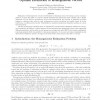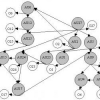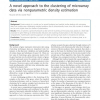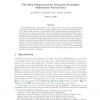411 search results - page 37 / 83 » Rank Estimation in Missing Data Matrix Problems |
SCIA
2005
Springer
15 years 8 months ago
2005
Springer
Estimation of inhomogeneous vectors is well-studied in estimation theory. For instance, given covariance matrices of input data allow to compute optimal estimates and characterize...
112
click to vote
ICPR
2008
IEEE
16 years 3 months ago
2008
IEEE
When a large amount of data are missing, or when multiple hidden nodes exist, learning parameters in Bayesian networks (BNs) becomes extremely difficult. This paper presents a lea...
167
click to vote
BMCBI
2004
15 years 2 months ago
2004
Background: The identification of relevant biological features in large and complex datasets is an important step towards gaining insight in the processes underlying the data. Oth...
182
click to vote
BMCBI
2011
14 years 9 months ago
2011
Background: Cluster analysis is a crucial tool in several biological and medical studies dealing with microarray data. Such studies pose challenging statistical problems due to di...
MA
2010
Springer
15 years 26 days ago
2010
Springer
We establish the Stein phenomenon in the context of two-step, monotone incomplete data drawn from Np+q(µ, Σ), a multivariate normal population with mean µ and covariance matrix...




